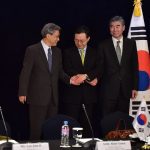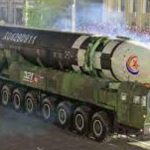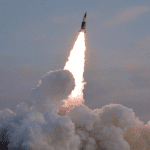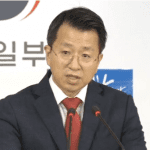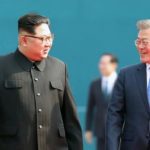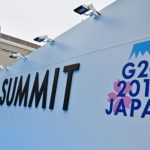The leaders of South Korea, Japan and the United States are set to meet at the US presidential retreat Camp David later this week for a summit that officials from the three countries say aims to usher in a new era of trilateral relations.
The event represents the first time that US President Joe Biden, his South Korean counterpart Yoon Suk-Yeol and Japanese Prime Minister Fumio Kishida will hold an official joint summit – beyond the less formal talks that have been held on the sidelines of international gatherings.
It comes amid a flurry of recent diplomatic breakthroughs between Japan and South Korea, which have had fraught relations since the 1910-1945 Japanese occupation of the Korean Peninsula.
White House National Security Adviser John Kirby on Wednesday hailed the “political courage” of Kishida and Yoon, saying the two leaders were laying the groundwork for stronger security, economic and other forms of coordination.
The meeting comes amid concerns about an increase in North Korean missile tests and China’s approach to the Indo-Pacific region, which the US has decried as “increasingly assertive”. In turn, polls have shown public opinion of Beijing tanking in Japan and South Korea.
The location of the summit is also notable, as Camp David has historically been a site where historic – and controversial – foreign policy agreements are reached.
The US-Japan-South Korea talks also mark the first time a major diplomatic event will take place at the Maryland retreat since 2015 and the first time that Biden will host any leaders at the site since he took office in early 2021.
Kirby told reporters the location was chosen to “signify and to demonstrate how seriously” Biden takes the US’s relationship with Japan and South Korea.
Poor relations between Japan and South Korea have long posed a stumbling block to Washington’s approach towards China and the wider Indo-Pacific region, according to analysts.
However, recent diplomatic overtures between the two nations – spearheaded by South Korea’s Yoon and well-received by Japan’s Kishida – have created a new opportunity for the US, said Yuki Tatsumi, director of the Japan programme at the Stimson Center think tank in Washington, DC.
Washington, which Tatsumi said historically has been averse to stepping between Seoul and Tokyo, currently has bilateral security alliances with both nations. Japan and South Korea also are among the US’s top trading partners, while they also maintain close economic ties with China.



